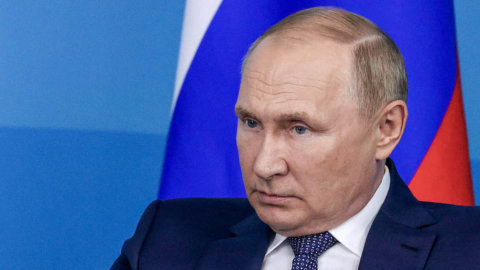What happens now in Brazil, after the Chamber has voted in favor of the impeachment of the president Dilma Rousseff? To authorize the procedure, two thirds of the votes of the assembly were required, i.e. the consent of 342 deputies was sufficient. The wide margin of approval has made it clear how little support the president and her government now receive in parliament is now, even if public opinion is extremely polarized, and Dilma's supporters are still many: this is why it is not still said that he actually loses office.
The motion proposing to impeach the president must in fact now pass the Senate: the upper house of the Brazilian parliament will discuss it for ten sessions, by May. If at the end of the discussion the majority of the chamber (41 senators out of 81) votes in favour, Rousseff will be suspended for 180 days: this is the most likely scenario, given the room numbers.
One hundred and eighty days correspond to six very long months, during which the specifically created parliamentary commission of inquiry will conduct investigations into the case, with the vice president Michel Temer who will assume the position on an interim basis. At the end of the investigations, the commission will present the accusation to the Senate, meeting in plenary session and chaired for the occasion by the president of the supreme court. The Senate will vote: if two-thirds of the assembly approve the indictment - a scenario that is not entirely obvious - the president will be permanently dismissed and Temer will assume full office until the next election in 2018.
So Dilma's odyssey will be long and perhaps painful, but it risks being even more so for the country, which for 6 months and perhaps even more will live practically stuck, in apnea, in uncertainty until at least 2018, when it will take office a new government elected from scratch by the citizens. The ordeal could stop earlier: the proceeding can in fact be challenged at any time before the supreme court, even if so far the judges of the highest Brazilian federal court have shown disinclined to defend the president and they rejected all the appeals presented to block the indictment.
Rousseff's supporters believe that the accusation of having falsified the budgets (to make the deficit appear lower than the real one) is not enough to oust the president, who in fact it is not investigated by the judicial authorities in any of the corruption investigations involving other Brazilian politicians. Workers' Party (PT) voters and elected officials define the impeachment procedure as a "coup d'etat" and they promise to continue their battle in the squares and in the senate. Yet Rousseff's popularity is at an all-time low in the country afflicted by a severe economic crisis. Demonstrations on both sides have been taking place for days in the main cities of the country: all within a few months of a global event such as the Rio 2016 Olympics, with regard to which the IOC has however minimized: "Preparations for Rio 2016 are in an operational and very advanced stage, in which politics has much less influence than a few months ago", wrote the Olympic committee in a note yesterday .





